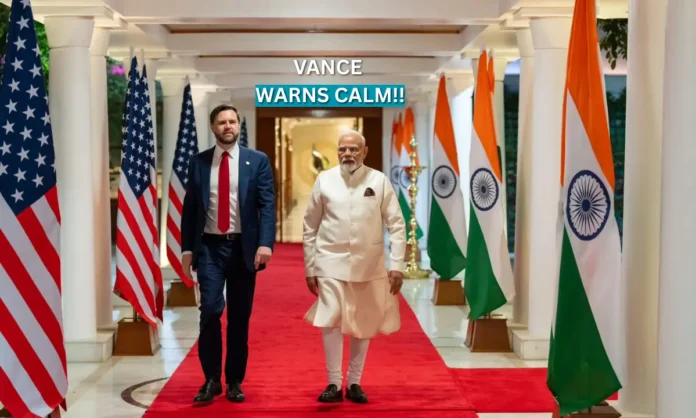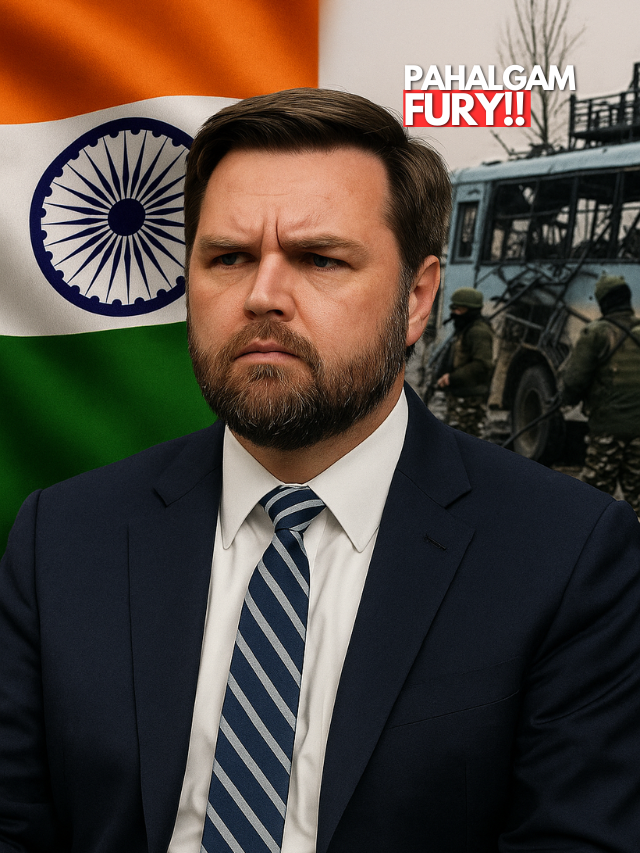SUMMARY
- US Vice President JD Vance urged India to respond to the Pahalgam terror attack without escalating regional conflict.
- Vance and other top US leaders expressed full solidarity with India, while asking Pakistan to cooperate in hunting down terrorists.
- India’s diplomatic backlash includes suspension of the Indus Waters Treaty and expulsion of Pakistani nationals.
US Weighs Support and Caution After Pahalgam Bloodshed
In the aftermath of the horrific Pahalgam terror attack that claimed 26 lives—including one Nepali national—international focus has sharply turned to South Asia’s fragile peace. While India mourns its dead and launches aggressive counterterror operations, Washington has stepped forward with a message of support tempered by calls for restraint.
Speaking to Fox News, US Vice President JD Vance articulated a stance balancing outrage and caution. He unequivocally condemned the attack, stressed America’s solidarity with India, and demanded Pakistan’s cooperation in bringing the perpetrators to justice. Yet he also urged India to respond in a manner that “doesn’t lead to a broader regional conflict”—a delicate diplomatic reminder of the nuclear stakes between India and Pakistan.
As India toughens its posture—suspending the Indus Waters Treaty and ordering Pakistani nationals to leave—Vance’s words mark a defining moment in how the Biden administration’s second-in-command navigates a potential flashpoint on the subcontinent.
JUST IN: 🇺🇸🇮🇳 The United States backs India's right to self-defense following the horrific Pahalgam terror attack.
— Asia Nexus (@Asianexus) May 1, 2025
US Defence Secretary Pete Hegseth assured RM Rajnath Singh of solidarity, leaving Pakistan on edge. pic.twitter.com/Di3x1Auv5D
JD Vance Voices US Support—and Caution
- US Vice President JD Vance condemned the Pahalgam terror attack as “devastating” and expressed “thoughts and prayers” for India.
- Vance stressed the need for Pakistan to assist India in tracking down terrorists.
- The US hopes India’s response will avoid sparking a wider regional conflict.
JD Vance’s statements during a podcast with Fox News were stark and personal. Still reeling from the tragedy while touring India with his family, he spoke not just as an official but as a witness to the nation’s grief.
“Our hope here is that India responds to this terrorist attack in a way that doesn’t lead to a broader regional conflict,” he said, adding that Pakistan “must cooperate” if it is serious about regional peace.
Last month, Vance had called Prime Minister Narendra Modi to convey direct condolences and pledged that the United States would “stand with the people of India” and offer “all assistance in the joint fight against terrorism,” according to Indian External Affairs Ministry sources.
His sentiments were echoed across Washington, with President Donald Trump and other US leaders labeling the attack “terror” and “unconscionable,” even as they stopped short of officially naming Pakistan as complicit.
India Responds with Swift Diplomatic and Military Actions
- India suspended the Indus Waters Treaty with Pakistan indefinitely, signaling a major diplomatic shift.
- Pakistani nationals in India have been asked to return home amid heightened tensions.
- Search operations are underway in Jammu and Kashmir to track down the terrorists involved.
The Pahalgam massacre, unfolding in the scenic Baisaran Valley often dubbed “Mini Switzerland,” sent shockwaves across India and beyond. Eyewitnesses described scenes of horror as terrorists opened fire in open fields, leaving tourists with no shelter or escape.
India’s immediate response has been robust. Besides intensifying counterinsurgency operations in Kashmir, the government has taken rare diplomatic steps: freezing the decades-old Indus Waters Treaty and expelling Pakistani nationals as part of a broader security recalibration.
These actions signal India’s readiness to leverage both hard and soft power tools, even as international observers like Vance urge restraint to prevent escalation into a regional war.
The Thin Line Between Justice and Escalation
- The Pahalgam terror attack is the largest in Kashmir since the abrogation of Article 370 in 2019.
- US calls for Pakistan’s accountability without publicly naming it as complicit in the attack.
- As India recalibrates its security and diplomatic strategies, global powers watch closely for any escalation.
The attack at Pahalgam has reopened old wounds for India—a reminder that despite decades of counterterror efforts, vulnerabilities persist. Yet it also poses a broader question: how can a democracy balance the demands of justice with the imperatives of regional stability?
JD Vance’s careful words reflect the American dilemma. While fully supportive of India’s right to self-defense, Washington is wary of a conflict that could spiral beyond control, especially in a nuclearized region.
India’s leaders now walk a strategic tightrope—pushed by public anger to act decisively, but also aware that every step could reshape regional dynamics.
Moving Forward: Justice, Diplomacy, and the Shadow of 2019
The Pahalgam terror attack has become a new inflection point in South Asian geopolitics. India’s measures so far—suspending treaties, expelling citizens, tightening security—signal a major shift from its 2019 post-Article 370 posture. But whether the coming weeks bring careful escalation or unrestrained conflict will depend not only on Delhi and Islamabad but on Washington’s behind-the-scenes diplomacy.
For JD Vance and the Biden administration, the challenge is clear: how to support India’s righteous anger while steering the region away from the abyss. In this fragile moment, every word, every action, every silence will matter.



